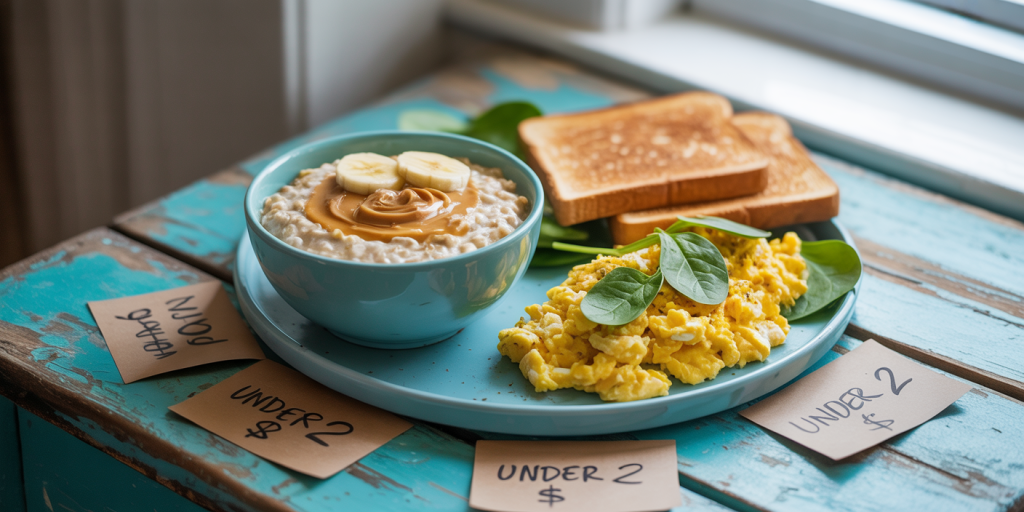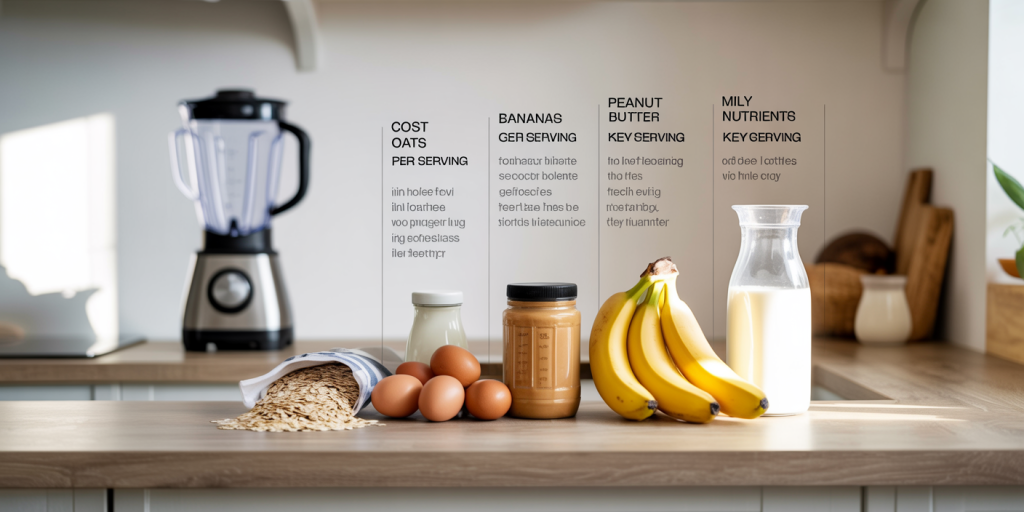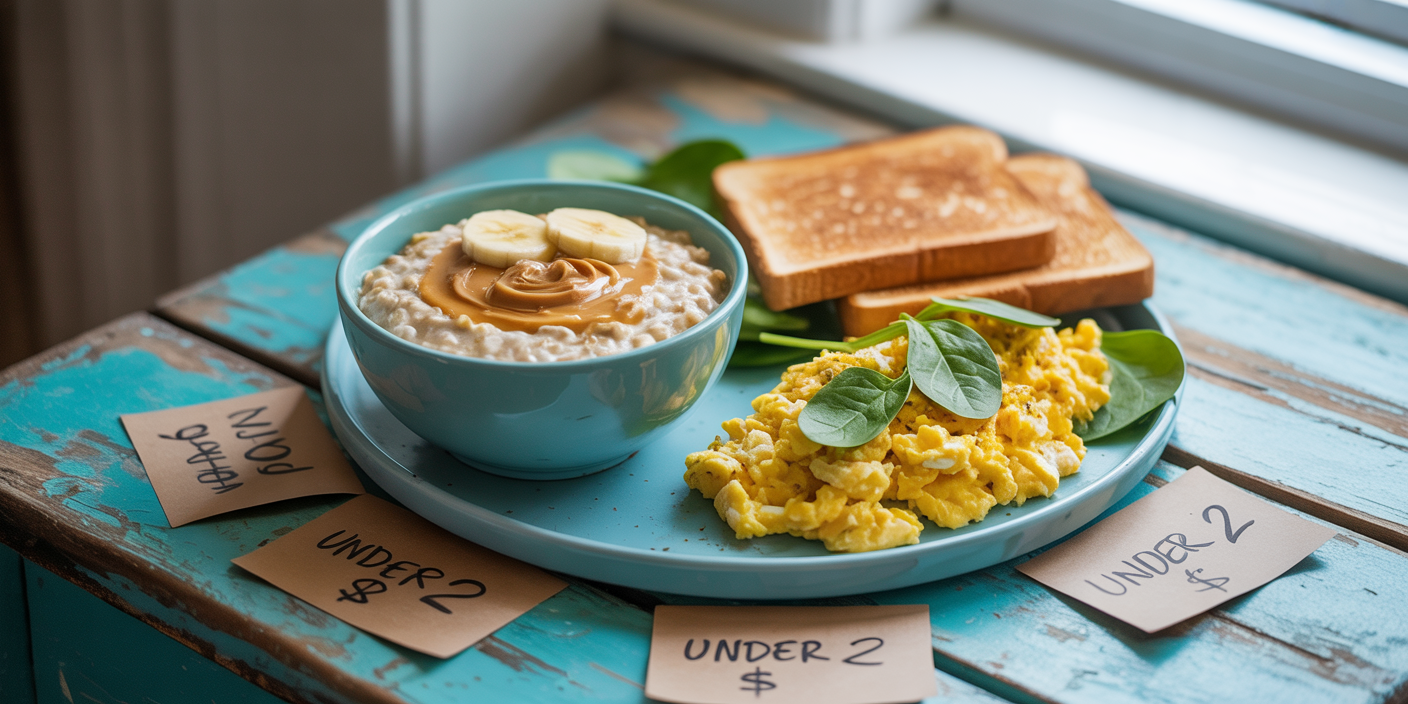Starting the day with a nutritious breakfast is essential, but not everyone can afford costly morning meals, especially when living on a tight budget. Fortunately, eating well doesn’t have to mean spending a fortune. With strategic planning, smart shopping, and a focus on wholesome yet inexpensive ingredients, it’s entirely possible to enjoy satisfying breakfasts for under $2 per serving. This article explores practical and proven ways to prepare balanced breakfasts without breaking the bank, supported by data, real-life examples, and cost comparisons.
The Importance of Affordable, Nutritious Mornings
Eating breakfast is linked to improved cognition, energy levels, and metabolism throughout the day. However, 34% of Americans regularly skip breakfast, often citing a lack of time or money as key reasons (NPD Group, 2023). Addressing the financial hurdle can encourage more individuals to adopt a morning meal habit, ultimately supporting better health outcomes.
Budget-friendly breakfasts under $2 per serving offer a viable solution to this challenge. Affordable meals don’t have to compromise on nutrition; rather, careful ingredient choices and cooking techniques can maximize both quality and cost-effectiveness. Leveraging staple foods such as oats, eggs, and seasonal fruits creates a foundation to enjoy variety and nutrition within tight budgets.
Economical Ingredients That Pack a Nutritional Punch
A key to cost-efficient breakfasts is knowing which ingredients offer the best nutritional value per penny. Staples like oatmeal, eggs, bananas, and peanut butter provide essential macronutrients and micronutrients at a low cost. For example, a 42-ounce container of rolled oats costs approximately $3.50 and contains about 60 servings, making the cost per serving near $0.06.

Eggs, often called nature’s multivitamin, deliver about 6 grams of protein and essential vitamins at roughly $0.15 per large egg (U.S. Department of Agriculture, 2024). Bananas, usually priced under $0.25 each, add potassium, fiber, and natural sweetness. Peanut butter supplies healthy fats and protein, typically costing $0.12 per two tablespoons.
By combining these ingredients differently, it’s possible to create multiple breakfast options that meet dietary needs while keeping costs exceptionally low.
| Ingredient | Typical Cost per Unit | Approximate Cost per Serving | Key Nutrients |
|---|---|---|---|
| Rolled Oats | $3.50 per 42 oz container | $0.06 per 1/2 cup serving | Fiber, complex carbs, protein |
| Large Eggs | $2.00 per dozen | $0.15 per egg | Protein, vitamins D & B12 |
| Bananas | $0.25 each | $0.25 per banana | Potassium, fiber, vitamin C |
| Peanut Butter | $2.50 per 16 oz jar | $0.12 per 2 tbsp serving | Healthy fats, protein |
| Milk (1 gallon) | $3.20 per gallon | $0.12 per cup | Calcium, protein, vitamin D |
Wholesome Breakfast Recipes Under $2

To illustrate practical applications, here are four budget-friendly breakfast recipes, each averaging under $2 per serving. These dishes combine affordability, simplicity, and nutrition, showcasing how anyone can eat well on a budget.
1. Classic Oatmeal with Banana and Peanut Butter Prepare 1/2 cup of rolled oats with water or milk ($0.06 + $0.12). Slice half a banana ($0.12) and add a tablespoon of peanut butter ($0.06). Total cost per serving: $0.36. This meal provides complex carbohydrates, fiber, and healthy fats – sustaining energy throughout the morning.
2. Veggie-Packed Egg Scramble Whisk two eggs ($0.30) and scramble with 1/4 cup chopped spinach or other leafy greens ($0.10). Serve with a slice of whole wheat toast ($0.20). You get a protein-rich meal with vital vitamins and minerals for $0.60 per serving, ideal for keeping hunger at bay.
3. Yogurt and Fruit Parfait Combine 1 cup of plain yogurt ($0.50) with mixed seasonal fruits like apples or berries ($0.40) and a sprinkle of granola ($0.30). This calcium-rich dish supports gut health and antioxidants for about $1.20 per serving, perfect for a sweet yet balanced start.
4. Peanut Butter Banana Smoothie Blend 1/2 banana ($0.12), 1 cup milk ($0.12), 2 tbsp peanut butter ($0.12), and a handful of ice or spinach ($0.10). This portable smoothie costs around $0.46 and is packed with protein, potassium, and vitamins to fuel the morning.
Real case studies demonstrate how these recipes meet nutritional recommendations without budget strain. For example, low-income families in urban food deserts have successfully incorporated oatmeal and eggs into their weekly meals, resulting in improved breakfast consumption rates (Feeding America Report, 2022).
Cost Comparison: Breakfast Choices at Home vs. Eating Out
Analyzing the economic implications of preparing breakfast at home versus purchasing from cafes or fast-food outlets is revealing. A typical restaurant breakfast sandwich starts around $4.50 and higher, easily doubling or tripling the cost of homemade options.
Table: Cost Comparison of Breakfast Options Per Serving
| Item | Cost Per Serving (USD) | Calories | Protein (g) | Fiber (g) |
|---|---|---|---|---|
| Homemade Oatmeal w/ Banana | $0.36 | 250 | 6 | 5 |
| Homemade Egg & Veggie Scramble | $0.60 | 300 | 18 | 3 |
| Store-bought Breakfast Sandwich | $4.50 | 450 | 20 | 2 |
| Coffee & Pastry from Cafe | $3.75 | 350 | 5 | 1 |
Data suggests that spending a few extra minutes at home preparing breakfast can save significant amounts monthly. For a family of four eating breakfast daily, choosing budget-friendly homemade meals can reduce expenses by nearly $300 per month compared to dining out.

Time-Saving Tips to Prepare Inexpensive Breakfasts
One common barrier to cooking budget breakfasts is the perceived time investment. However, meal prepping and selecting quick recipes can mitigate this.
Batch cooking oatmeal or egg muffins on weekends provides ready-to-eat options during busy mornings, reducing the risk of skipping breakfast or opting for costly convenience foods. Using frozen vegetables, which often cost less and have a longer shelf life than fresh produce, keeps prices down without sacrificing nutrition.
Moreover, investing in basic kitchen tools such as a slow cooker or blender optimizes time efficiency. Encouragingly, studies show meal preparation time decreases with routine, making home cooking a sustainable habit even for those with demanding schedules (Journal of Nutrition Education, 2023).
Future Perspectives: Advancing Access to Affordable Nutritious Meals
Efforts to promote low-cost, nutritious breakfasts align closely with public health goals addressing food insecurity and chronic disease prevention. Technological advancements, such as mobile apps that track grocery deals and meal plans, can help consumers stay within budget more effectively.
Community programs focusing on nutrition education and subsidized groceries also show promise. For example, the SNAP-Ed program provides resources on meal planning emphasizing budget-conscious recipes that meet dietary needs (USDA, 2023). Expansion of similar initiatives could broaden impact.
Artificial intelligence and machine learning models are beginning to recommend personalized meal solutions based on cost constraints, dietary restrictions, and local availability. These innovations could revolutionize how individuals and families approach affordable nutrition.
Investing in culinary skills via virtual workshops or public education campaigns could also empower more people to take advantage of affordable ingredients and simple recipes, thereby reducing dependence on expensive, processed breakfast items.
Providing budget-friendly breakfasts under $2 per serving proves that nutritious meals and affordability can coincide without compromise. Through informed ingredient choices, creative recipes, and smart shopping, individuals and families can enjoy healthy starts to their days. With continued innovation and education, accessible affordable nutrition is an achievable goal worldwide.

Deixe um comentário